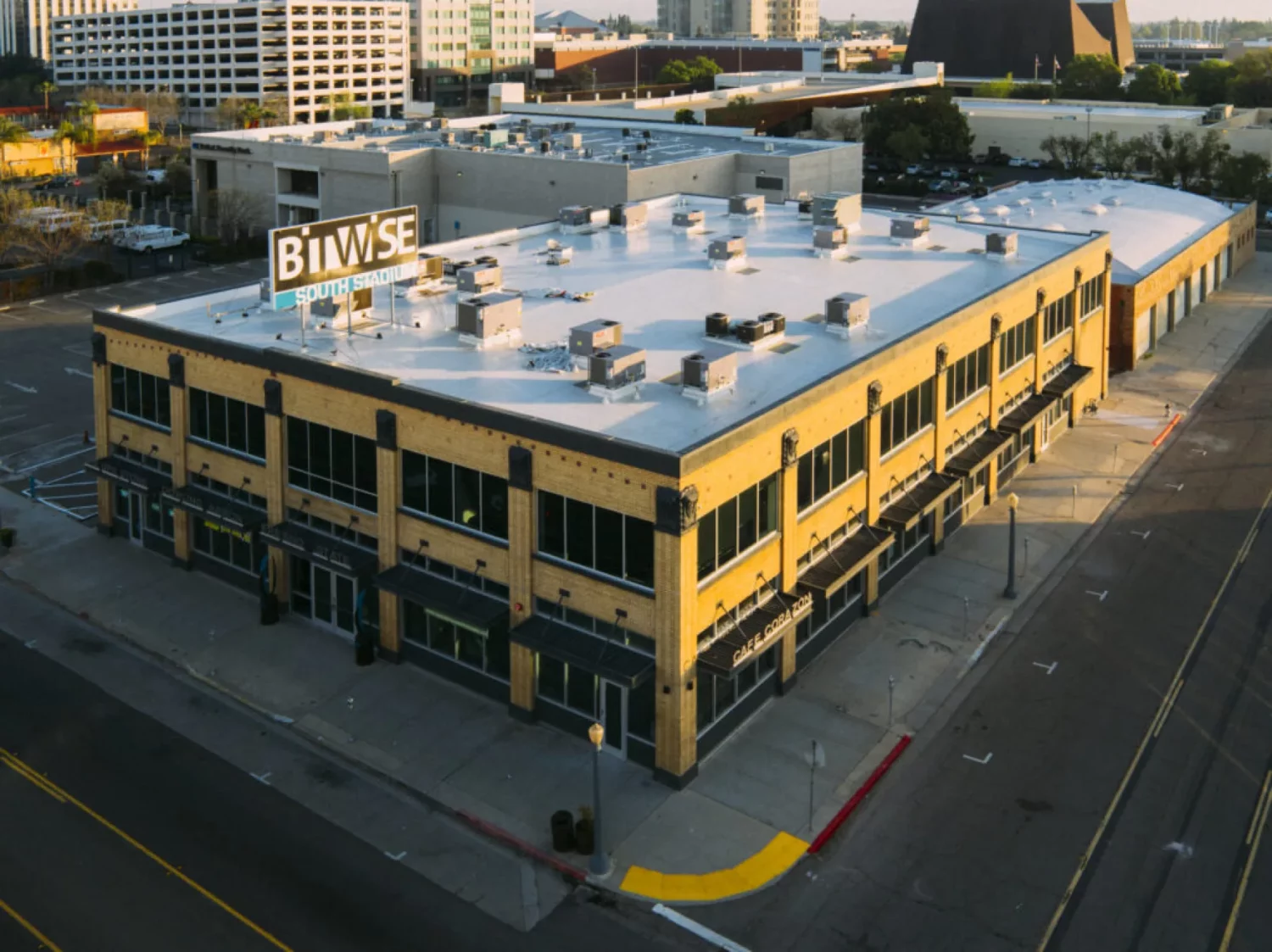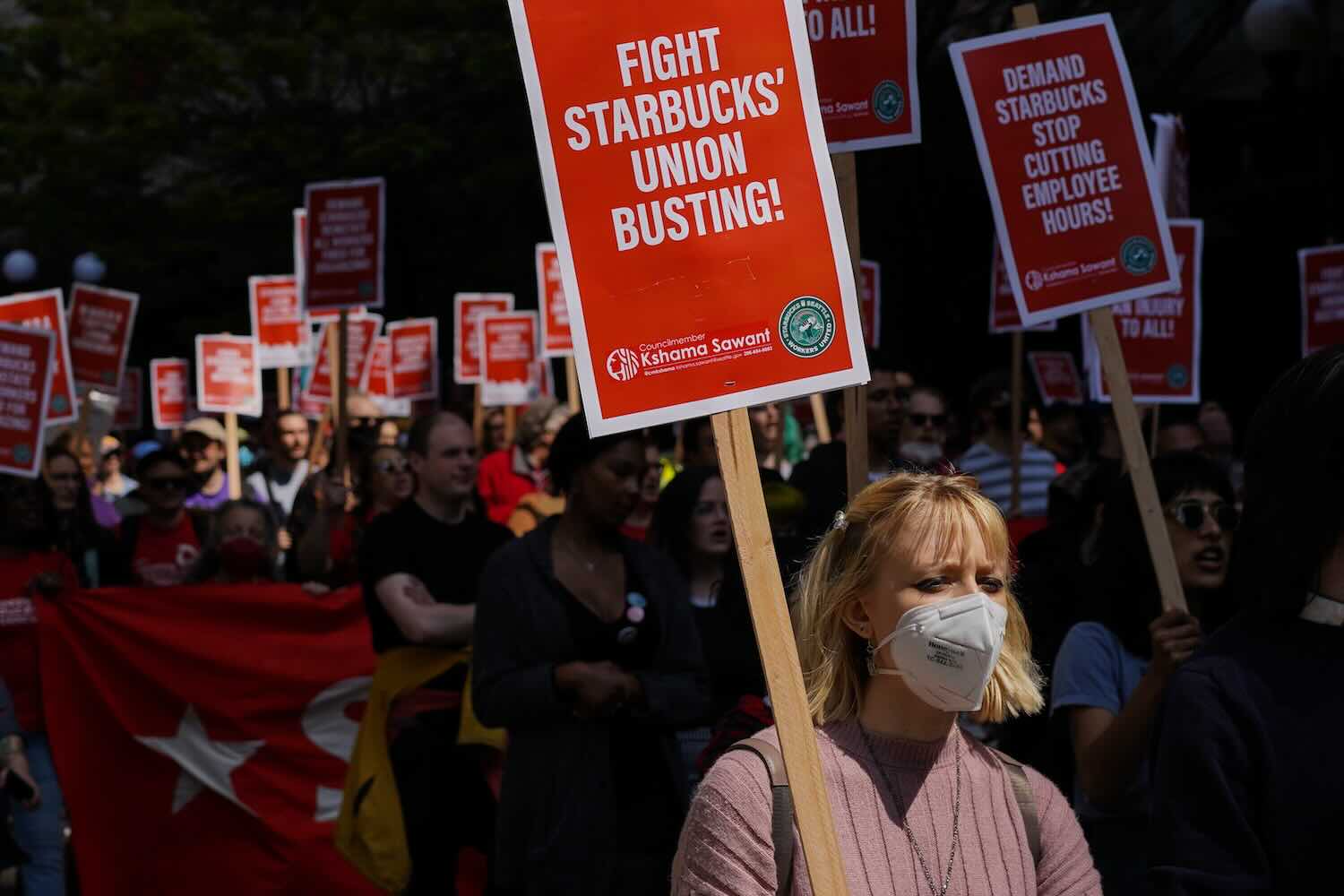ImpactAlpha, June 27 — Over drinks or on the sidelines of conferences, it’s not uncommon to hear impact investing practitioners wish for a fuller airing of the industry’s flops to go along with celebrations of its successes.
Failure is good, they say, insofar as it reflects a willingness to take risks, or at least is educational, with lessons that can help future investors avoid the same mistakes.
When the failures occur on their watch, however, investors are less talkative.
The exact circumstances of this month’s dramatic blowup of Bitwise Industries, the Fresno, Calif.-based tech job training program, business incubator and co-working space, are not yet clear. One obvious lesson: Don’t let impact hype blind you to financial due diligence.
“We have continued to double-down round after round and the skeptics have been proved wrong round after round,” Mitch Kapor of Kapor Capital, a board member and early investor, told ImpactAlpha in March about the firm’s investments in Bitwise.
The social-enterprise darling furloughed its 900 employees and suspended operations on May 31. Co-CEOs Jake Soberal and Irma Olguin Jr. were fired the next day. The company, which had more recently expanded to Columbus, Chicago, El Paso, Buffalo and other cities, faces multiple lawsuits, including from employees who say the company violated labor laws with the sudden furloughs.
Mea culpa: ImpactAlpha contributed to the early buzz. Since we first profiled co-founder Olguin back in 2019, we’ve written a half-dozen stories as the company went on to raise at least $157 million over several financing rounds, including $80 million led by Kapor Capital and Motley Fool in late February.
We also highlighted Bitwise as a prime example in our write-up earlier this year of the book “Closing the Equity Gap: Creating Wealth and Fostering Justice in Startup Investing,” by Mitch and Freada Klein Kapor.
“The energy was palpable,” Kapor, a veteran tech entrepreneur who founded Lotus Development Corp. and developed the Lotus 1-2-3 spreadsheet, said in an interview at the time. “When we walked in, we could see all these folks, mostly Black and Brown folks, who had been excluded from and totally outside the tech ecosystem, and now they were becoming a part of it.”
Contacted by email, Kapor declined to discuss the company’s meltdown. The Kapors last year turned over Kapor Capital’s leadership to co-managing partners Brian Dixon and Ulili Onovakpuri. By email, Onovakpuri said, “We aren’t doing any press about Bitwise.”
The tech publication The Information got ahold of Freada Klein Kapor, who told them, “From where I sit, we were presented not just with a general sentiment that things were okay, but with financials that seemed to [now] not match reality.”
She added, “The picture of Jake and Irma that is emerging now…bears no resemblance to how they have presented themselves to me and to others for many, many years.”
“Things get missed”
Bitwise looked like a company on the way up. Buoyed by funding from investors including Goldman Sachs and JPMorgan Chase in addition to Kapor Capital, it scooped up buildings in cities such as Buffalo, Toledo, El Paso and other cities, and acquired small software and consulting firms. With each move into a new city, Bitwise brought promises of revitalization of blighted neighborhoods, and job creation for marginalized communities – underdogs, as the company called them.
The first inklings of trouble at the company surfaced in January 2022, when the company and co-CEO Soberal were sued in Fresno County Superior Court by a partnership formed to purchase and renovate an old brick warehouse in Fresno.
Fresno’s Wilkins Enterprises and Quiring Construction said Soberal and Bitwise failed to pay monthly rent, utilities and taxes and to insure the property, despite being occupant-ready since December 2021. Bitwise bought the building for an estimated $22 million to settle the lawsuit last July.
Problems mounted this spring. Bitwise was behind on property tax payments on four downtown Fresno properties and rent for three buildings it leased in downtown Fresno. The company oddly switched from direct deposit to paper checks amid complaints of bounced paychecks and missing 401(k) payments, according to local media reports.
In an answer to the question, “What is the financial health of Bitwise right now?” Soberal told GV Wire in a video interview released in late May, “I hope it’s good. We’re really excited about the future over here.” He added, “One of the unfortunate parts of running a company that’s growing very quickly is [that] things get missed.”
By then, Soberal was scrambling to raise funds, allegedly pledging Bitwise shares to multiple lenders, according to news reports.
The same week Bitwise furloughed workers, NICbyte LLC, a Houston-based real estate investment firm that financed five of the company’s building acquisitions in California, including the Fresno warehouse Bitwise purchased in a settlement, filed a lawsuit against the company charging “flagrant deception and unauthorized actions, taking out approximately $30,000,000 in loans ostensibly secured by the Company’s properties and listing four of them for sale without the Investor’s approval or consent.” NICbyte is seeking $33 million in damages.
The pileup of lawsuits includes one from more than 100 former Bitwise employees who hope to get compensation over Bitwise’s violation of California’s Worker Adjustment and Retraining, or WARN, Act, which requires 60 days notice of a furlough. A similar lawsuit has been filed in federal court by former Bitwise employees in Buffalo.
“It is flatly impossible that the board did not know and did not contemplate the imminent and catastrophic consequences for all of these employees,” Roger Bonakdar, a Fresno lawyer representing former Bitwise employees in the class action suit, told the Los Angeles Times.
Before the most recent financing round, Kapor Capital’s Kapor Center completed a 17-page due diligence document, according to The Information.
Fallout
“There’s not going to be a Bitwise,” a person familiar with the situation told ImpactAlpha. “They’re going to wind everything down and sell the buildings.”
Shocked former Bitwise employees have resorted to Gofundme campaigns to make ends meet. Local companies recently acquired by Bitwise have gone bust along with the parent company. In Buffalo, 70 residents had expected to start Bitwise training classes when the company shut down.
Bitwise is far from the first high-flying startup to go bust. Indeed, another Kapor capital portfolio company, the LGBTQ+ banking startup Daylight, is shutting down on Friday, amid allegations of improprieties.
Bitwise’s mission and charismatic founders may have blinded those closest to it from signs of trouble.
“One venture capitalist’s lesson learned is someone else’s eviction notice,” a former Bitwise marketing director wrote in The Fresno Bee. “Maybe to some investors, startup funding is monopoly money. But it’s real to the underdogs who can’t make rent.”











